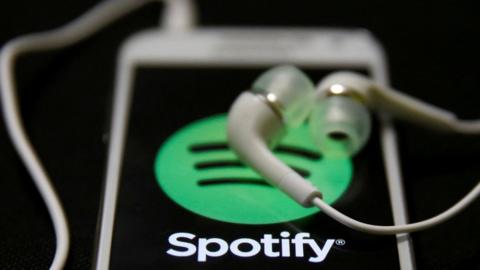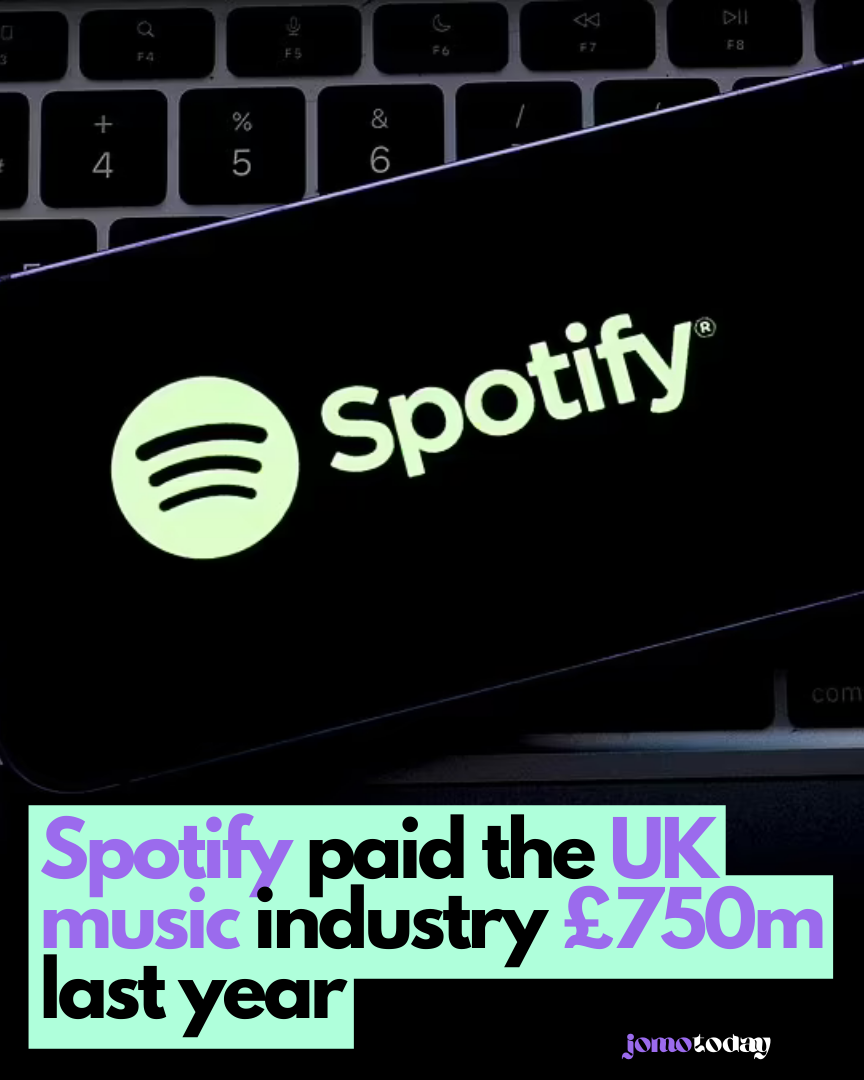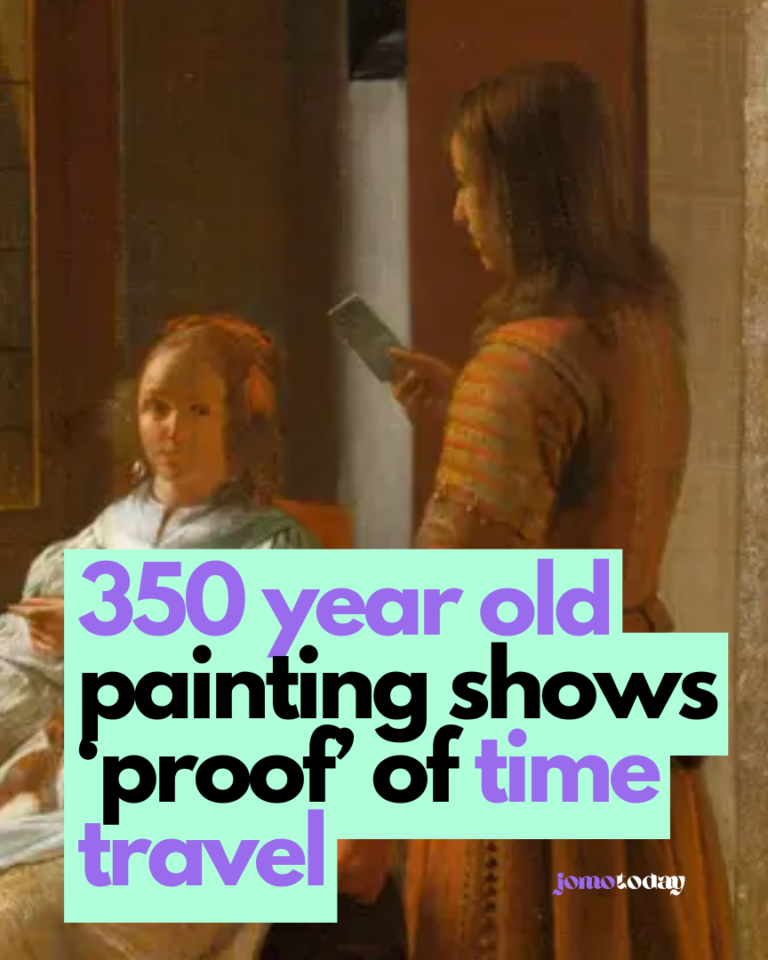Spotify paid the UK music industry £750m last year, doubling the money generated by UK artists since 2017. Ed Sheeran is at the forefront of this growth.

The money generated by UK artists has doubled since 2017, with Ed Sheeran leading the charge.
Nearly 1,000 artists saw their music streamed frequently enough on Spotify to generate at least £100,000 in royalties each, according to the company’s “Loud and Clear” campaign, aimed at increasing transparency in music industry payments.
However, Spotify cannot specify how much of those royalty payments actually reach the artists, as it varies based on individual contracts with record labels and publishers. Testifying before a parliamentary committee in 2021, it was noted that artists typically receive around 16% of the revenue.
This would mean that an artist whose music earned £100,000 on Spotify might only receive £16,000 in royalties before taxes. Nevertheless, Spotify’s dominant position in the UK music streaming market, accounting for approximately 50% according to the Competition and Markets Authority (CMA), implies that artists could potentially earn a similar amount again through other platforms such as Apple Music, Amazon Music, and Tidal.
Last year, Ed Sheeran claimed the title of the most streamed British artist on Spotify, accumulating 6.35 billion plays of his songs. Following closely behind, Coldplay secured the second spot with 5.58 billion streams, while Harry Styles trailed in third with 5.11 billion streams.
Despite their impressive performances, British artists fell short of breaking into Spotify’s Top 10 most-played list, which was led by Taylor Swift with 29 billion streams, and included international stars like Bad Bunny from Puerto Rico, Peso Pluma from Mexico, and Karol G from Colombia.
The shift indicates that fluency in English is no longer essential for achieving global success in music.
According to Spotify, over half of the artists who earned $10,000 (£8,000) last year hail from countries where English isn’t the primary language.
While English remains the dominant language in global music, representing 54.9% of the top 10,000 songs, its dominance is decreasing, as languages such as Hindi and Japanese are gaining ground.
“It’s an exciting era for the music industry,” expressed Bryan Johnson, Spotify UK’s head of artists and industry partnerships.
“In recent years, we’ve witnessed the surge of genres like K-pop and Amapiano, and now we’re seeing Music Mexicana gaining traction globally.
“The range of options available to fans and listeners today is truly remarkable.”
He highlighted that 75% of royalties paid to UK artists originate from international audiences, indicating substantial potential for export as the streaming market evolves.
Johnson also noted that independent artists and labels accounted for 40% of the UK’s royalty payments, totaling £300 million. These artists often receive a larger portion of the earnings, with those who self-release music sometimes retaining 100% of the revenue generated by their songs.
Spotify has recently faced criticism for implementing a policy that demonetizes songs with fewer than 1,000 streams within a 12-month period. This means that copyright holders will not receive payment if their songs fall below this threshold.
Critics argue that this policy will disproportionately benefit popular artists while depriving lesser-known musicians of income. However, Johnson, a representative for Spotify, asserts that the policy aims to combat spam and fraudulent activity.
Spotify has clarified that even if a song reaches 1,000 plays, the generated revenue is often minimal, around $0.25 (£0.20), due to distributor-set minimum withdrawal thresholds. The company estimates that this new policy will redirect $40 million (£32 million) toward more popular songs, benefiting emerging and professional artists.
This year marks the first time Spotify has disclosed its UK payout figures, totaling £750 million, double the amount from 2017. The company announced earlier that it paid $9 billion (£7.2 billion) in royalties worldwide last year, making it the largest single contributor to the music industry’s revenue. YouTube, once considered a thorn in the industry’s side, is now the second-largest source of income, having paid out $6 billion (£4.8 billion) to rights-holders last year.
This substantial contribution is a testament to the growing impact of streaming services in supporting artists and fueling the music economy. With more and more listeners turning to digital platforms like Spotify, the potential for artists to reach a wider audience and earn from their craft continues to expand. This influx of revenue not only reaffirms the vitality of the music industry but also underscores the power of streaming in driving its evolution. So, here’s to celebrating Spotify’s meaningful support for the UK music scene, and to the promising future it holds for both musicians and music enthusiasts alike!
Read More: Spotify turns up volume to make record profits
Disclaimer:
This content is AI-generated using IFTTT AI Content Creator. While we strive for accuracy, it’s a tool for rapid updates. We’re committed to filtering information, not reproducing or endorsing misinformation. – Jomotoday for more information visit privacy policy






Leave a Comment